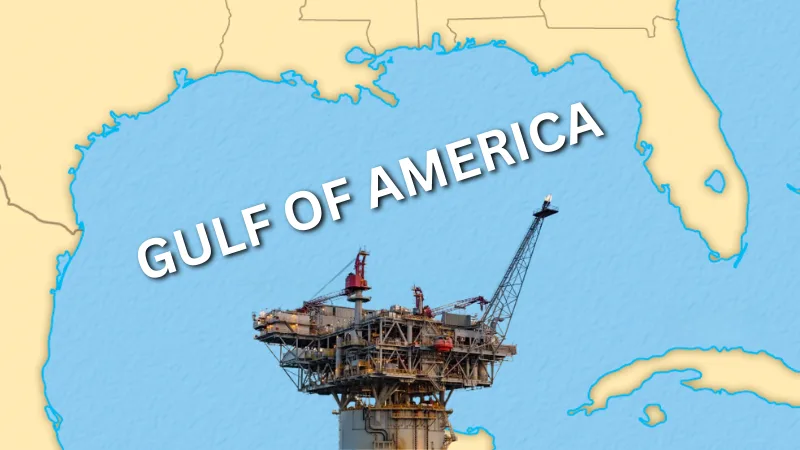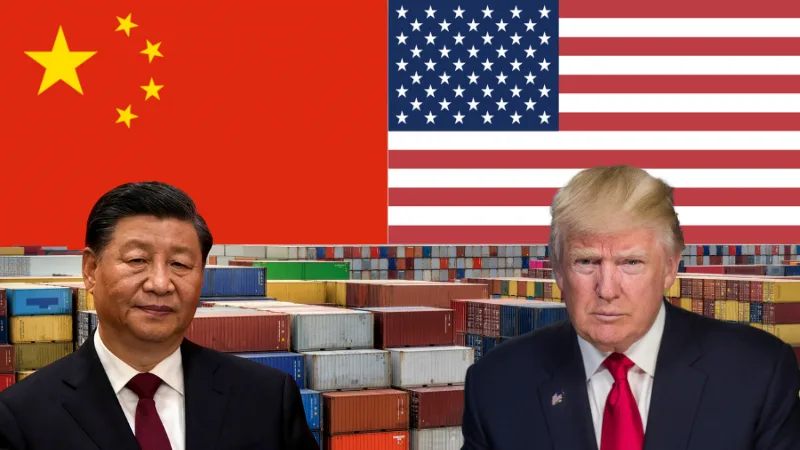Donald Trump’s proposal to rename the Gulf of Mexico to the “Gulf of America” has sparked considerable debate. While supporters hail the move as a patriotic gesture symbolizing U.S. sovereignty and strength, critics suggest that the underlying motivation may have more to do with energy policy than nationalism. This renaming initiative comes at a time when the Gulf—a critical hub for oil and gas production—is playing an increasingly significant role in the United States’ energy strategy. Could this bold rebranding effort be a calculated step to bolster U.S. control over the region’s valuable resources?
The Gulf’s Importance to U.S. Energy Production
The Gulf of Mexico is a cornerstone of U.S. energy independence. Accounting for approximately 15% of the country’s total crude oil production, the region hosts extensive offshore drilling operations. Federal waters in the Gulf are home to some of the largest oil fields in the United States, with energy companies like BP, Chevron, and Shell maintaining significant infrastructure there.
In recent years, federal lease sales for offshore drilling in the Gulf have surged, reflecting a strong push to maximize domestic energy resources. The Trump administration previously emphasized “energy dominance” as a cornerstone of its economic and foreign policy, aiming to reduce reliance on foreign oil while expanding domestic production. Against this backdrop, the Gulf’s rebranding as the “Gulf of America” could symbolically and politically underscore its role as a vital national asset.
Renaming as a Tool for Energy Dominance
Renaming the Gulf of Mexico might seem like a mere patriotic gesture, but its implications could extend far beyond symbolism. By rebranding the Gulf as “American,” the administration could reinforce a narrative of exclusive U.S. ownership, even in areas of the Gulf where international waters and shared jurisdictions exist. This redefinition could:
- Strengthen Public Support: Framing the Gulf as inherently American could sway public sentiment in favor of expanded drilling, portraying it as a patriotic duty to harness the region’s resources.
- Assert U.S. Claims: While the renaming would not alter international agreements, it could bolster domestic arguments for prioritizing U.S. interests in energy extraction.
By emphasizing national ownership, the administration could sideline concerns about environmental risks or international cooperation in favor of advancing energy production.
Streamlining Regulatory Oversight
A potential consequence of this renaming effort is its influence on regulatory policies governing oil and gas production. Agencies like the Bureau of Ocean Energy Management (BOEM) are responsible for approving leases and overseeing drilling operations. Reframing the Gulf as part of “America” might provide a rhetorical justification for:
- Accelerated Permitting: Federal authorities could streamline the approval process for drilling leases, citing the Gulf’s importance to national energy security.
- Weakened Environmental Oversight: Environmental impact assessments, which often delay or block energy projects, could be deprioritized to fast-track production.
- Circumventing International Agreements: Treaties like MARPOL, designed to protect marine environments, could be undermined by unilateral actions justified under the guise of “American sovereignty.”
These regulatory changes could significantly expand oil and gas operations in the Gulf, further embedding it as a centerpiece of U.S. energy policy.
Environmental Concerns and Diplomatic Tensions
While the push for increased energy production aligns with economic goals, it raises significant environmental and diplomatic concerns. The Gulf of Mexico’s ecosystem is fragile, and the region has already experienced catastrophic events like the Deepwater Horizon oil spill. Expanding drilling operations could:
- Increase Risk of Disasters: More drilling increases the likelihood of spills, threatening marine life and coastal economies.
- Heighten Climate Change Concerns: Environmentalists warn that ramping up fossil fuel extraction is incompatible with global efforts to mitigate climate change.
On the international front, renaming the Gulf may strain relations with Mexico and Cuba, both of which have economic interests in the region. Mexico, for instance, shares jurisdiction over parts of the Gulf and relies on its resources for energy production. Such a move could be seen as U.S. overreach, complicating cross-border agreements and fostering diplomatic tensions.
Nationalism vs. Energy Policy
Supporters of the renaming initiative argue that it’s a powerful statement of American sovereignty and a way to honor the Gulf’s contribution to the nation. However, critics contend that the true motivation lies in advancing an energy agenda that prioritizes oil and gas production over environmental and international considerations. This effort aligns closely with Trump’s broader “America First” policies, which often intertwine patriotic rhetoric with economic objectives.
By reframing the Gulf as exclusively “American,” the administration could rally support for deregulation and expanded drilling while marginalizing opposition from environmentalists and foreign governments. The question remains: is this a patriotic rebranding or a calculated strategy to secure energy dominance?
Conclusion
Donald Trump’s push to rename the Gulf of Mexico as the “Gulf of America” may be about more than just national pride. By elevating the Gulf’s symbolic importance, the administration could pave the way for policy shifts that prioritize domestic energy production while sidestepping environmental and international concerns. As the debate unfolds, it’s crucial to examine the practical implications of such symbolic actions and their potential long-term impact on the environment, diplomacy, and energy strategy.
Is this move truly about nationalism, or is it a calculated step toward turning the Gulf into the epicenter of American energy dominance? The answer may lie not in the rhetoric but in the policies that follow.





